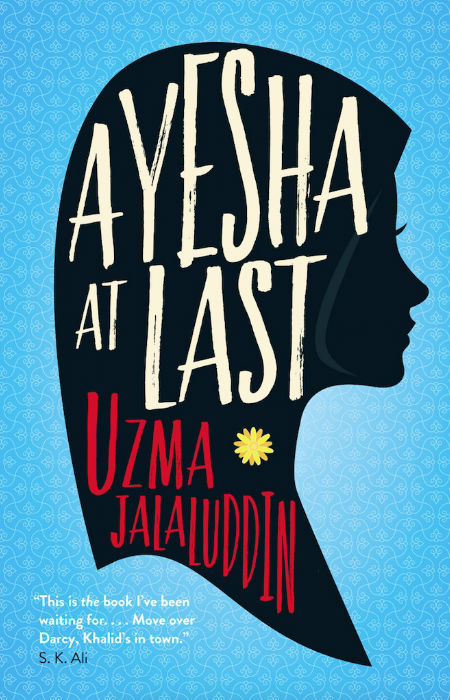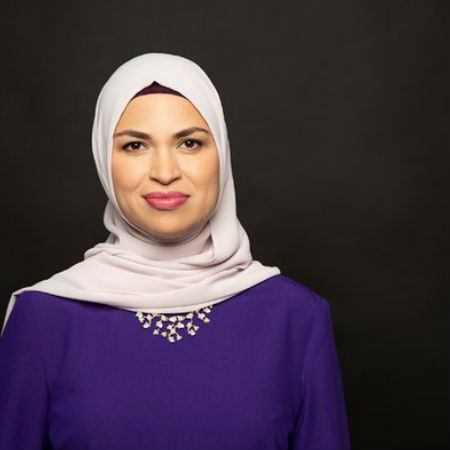
Romantic comedies are a beguiling creation.
Suffused with more hope and promise than an excited five-year-old running to their first day of school, awash with the kind of romantic view of life that makes you think everything is going to be okay come what may, and propelled by the sense that every obstacle can, and will be, overcome, they are the antidote to the grinding existential sense we all have that life has no magic and no real purpose.
But while they may come across as powder puff pieces of glittery optimism, the truth is that crafting one, a really good one, taking a lot of skill, skill that it appears Canadian author Uzma Jalaluddin has in abundance.
Her debut novel Ayesha At Last is a breathtakingly-good new entry to the literary rom-com canon, full to the brim with all the good things you would expect from a book of this kind, with the added richness of taking us away, at least in part. from the usual white Western view of love and romance.
Set in Canada, one of a handful of modern truly successful liberal western democratic multicultural societies that haven’t lapsed into some kind of collective proto-fascist witchhunt, Ayesha At Last, is set in the Indian Muslim community of Toronto, a world that straddles the past and the present, often not at all easily.
“At the thought of romantic perks, Khalid’s attention drifted to the window once more—but he stopped himself. The girl with the (broken) red mug would never be more than a fantasy. Because while it is a truth universally acknowledged that a single Muslim man must be in want of a wife, there’s an even greater truth: To his Indian mother, his own inclinations are of secondary importance.” (P. 4)
In that respect, it is like many migrant communities which harbour both the more traditional aspects of a society left many thousands of kilometres behind and the emergent, newer hybids of the next generation, who have one foot set firmly in their cultural past and another in a world that has been theirs since birth.
It is in this world of the old and the new that Ayesha and Khalid both live, two young Muslims who couldn’t be more different from each other and who, quite naturally, are thus utterly and completely destined for each other.
In that respect, at least, Ayesha At Last echoes one of the familiar tropes of this or any rom-com; that true love emerges not from the obvious pairings, where assumed compatibility is lit up like gloriously-gaudy neon, but from the most unexpected of places, in this instance between an observant traditional Muslim man called Khalid, who prays five times daily and is willing to let his mother choose his wife as is the traditional custom, and a far more free-spirited poet and teacher, Ayesha, who is is respectful of her cultural heritage but determined to forge her own path as well.
One of the great pleasure of Jalaluddin’s brisk and breezy but not insubstantial tale of love is that while the idea of two completely-different people falling in love is rom-com 101, neither Ayesha nor Khalid are cardboard cutout tropes, there simply to push along the engaging narrative.

Jalaluddin deftly gives both these characters real substance and personhood, investing them with the truth of two people caught in that eternal limbo between tradition and modernity, between exercising their own free will and being respectful of the needs and desires of others.
Being the three-dimensional, multi-faceted complex people that they are, each of them powered by not-immediately-obvious motivations, grants Ayesha At Last the kind of solidity and meaning that only the most accomplished of rom-coms ever achieve.
This, then, is not just the story of two people who fall in love on a crowd-pleasing whim, who happen to be Muslim and who must negotiate a plethora of obstacles, both familial and societal; it’s a thoughtful and considered consideration of what life is like in a multicultural society for immigrants who want to understandably hold on to who they are while giving their children the chance to be whatever they choose to be.
As with people everywhere, this tension between competing demands leads to some flawed and compromised decisions, and Jalaluddin explores them beautifully without once weighing down the story with any great cumbersome cultural treatise.
Rather, her beguiling storyline, which has all the happy ever afters you could ask for, flies along in whim, attraction and fancy while still managing to ask some pretty big questions, all of which bedevil not just Khalid and Ayesha, but a number of other key characters in the book.
“She [Ayesha] thought about comfortable and excited she had felt sitting next to Khalid in the parking lot, the occasional hum of a train leaving the station nearby a buffer from the rest of the world. Their voices low and soft, faces illuminated by a lone street lamp. After they had eaten the last Twinkie and drunk the last of their slushies, they had walked to her car. Even then they’d lingered, not wanting to leave.” (P. 161)
Ayesha At Last is refreshing because it refuses to simply treat these big cultural issues as some whimsical dilemma to be overcome.
Sure, Ayesha and Khalid get their romantic happyily-ever-after – c’mon, you must have known that was given; hardly a spoiler – but there’s a lot of issues to be thought through, problems to be solved, and people to navigate, all of whom have their own reasons for acting the way they do.
Thrown in the complexities of navigating the twin identities of being an observant Muslim and a modern Canadian, and you have brilliantly-complex terrain for our nascent lovebirds to overcome.
It makes for an enthrallingly-clever, highly-amusing at times and heartstoppingly-lovely tale of love against the odds that takes a welcome step into a community many non-Muslim readers will be largely unfamiliar with, and while Jalaluddin doesn’t necessarily seek to educate or build a bridge between two worlds, that is effectively what she does, both for her characters and many of her readers, who while being given insight into a world they may not know, are also reminded that affairs of the heart are a universal human condition, a welcome realisation that, cliches aside, there is more that unites us than divides us.